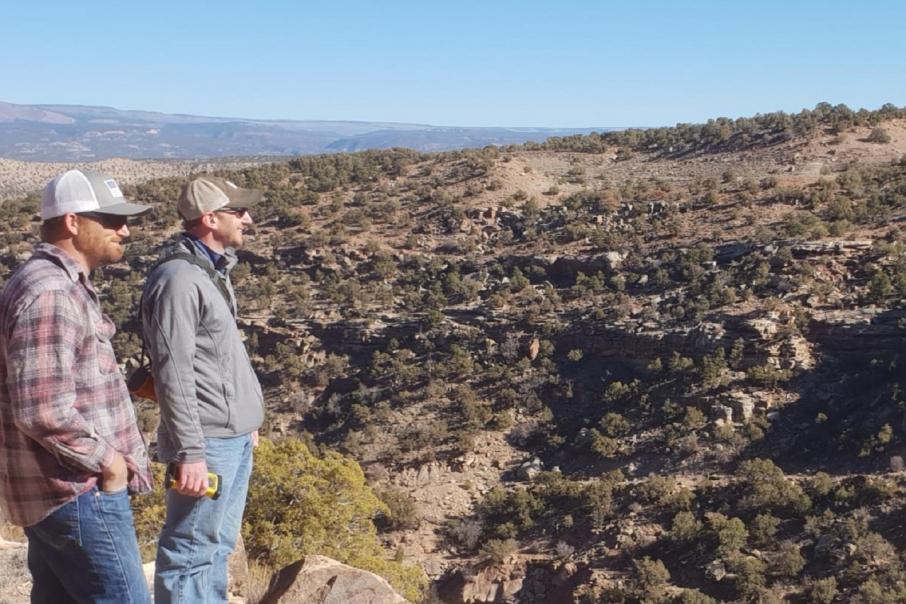
erth based Delecta Ltd has boots on the ground now at its REX uranium-vanadium project in the US where its field team has picked up some interesting rock chips grading up to 0.53 per cent U3O8. The samples also returned up to 1.36 per cent vanadium pentoxide, underscoring the historical uranium-vanadium occurrences in the region.
The REX project lies within the prolific Uravan Mineral Belt in southwestern Colorado in the USA, an area that is no stranger to both uranium and vanadium. The belt boasts a history of both commodities being mined as far back as 100 years ago.
Delecta picked up a 60 per cent stake in the REX project last month from Sunrise Minerals.
The project comprises contiguous mineral claims covering just over 2,000 hectares across the Uravan Mineral Belt.
According to a report by the U.S. Department of Energy Office of Scientific and Technical Information, the Uravan Mineral Belt has produced about 86 million pounds U3O8 at an average grade of 0.24 per cent and 441 million pounds of vanadium pentoxide grading 1.25 per cent.
Within the Uravan Mineral Belt, uranium deposits tend to form in clusters about 300 metres to 1km wide and up to 2km long, according to the New Mexico Geological Society.
The uranium and vanadium mineralisation is hosted in sandstones of the “Salt Wash Member” within outcropping paleo-river channels. The geology formations run for miles and are easily mapped.
As part of Delecta’s due diligence, Sunrise Minerals’ in-country team of specialists took 17 samples from across the REX project. Three samples from the Salt Wash sandstones were picked up and the remaining samples were “visibly mineralised” rocks taken from some historical mine waste dumps.
Of the 17 samples, 12 exceeded 587 parts per million U3O8 with an average grade of 2,246ppm, or 0.22 per cent U3O8.
All 17 samples contained vanadium, averaging of 6,429ppm or 0.64 per cent vanadium pentoxide.
Delecta’s REX project is dotted with historical workings, including at least four historical uranium mines, the Rex 38, South Blackfoot, Sunbeam and Helen C mines.
The company said no individual production records are available for these mines, which is perhaps not surprising given the ground has been held by generations of private families.
Delecta said it now has the Sunrise Minerals in-country team working on its project that is located within easy trucking distance of Energy Fuels’ operating White Mesa mill – the USA’s only operating conventional uranium-vanadium mill.
The White Mesa mill was commissioned in 1980, refurbished in 2007 and has a licensed capacity of about 3000 tonnes of uranium per year. Up until 2019, it produced over 17,000t of uranium from 125 different mines and over 20,000 tonnes of vanadium, according to the World Nuclear Association.
Delecta Managing Director, Malcolm Day said: “The project’s history of uranium mining, its proximity to operating infrastructure and the prevailing supportive government regime, bodes well for the development of the project.”
The company is now planning to get aggressive at REX and will undertake a geological mapping program using a scintillometer and handheld XRF analyser to scout for traces of uranium and vanadium.
It will also look to gain entry to the old underground workings and start the drill permitting process.
With a mill on its doorstep that is nowhere near capacity and a Government set to super charge demand by purchasing 3.75 million pounds per annum of domestic uranium to create an incredible US$1.5 billion reserve, Delecta looks to have found a favourable niche in a commodities space that is open for business.
www.businessnews.com.au

